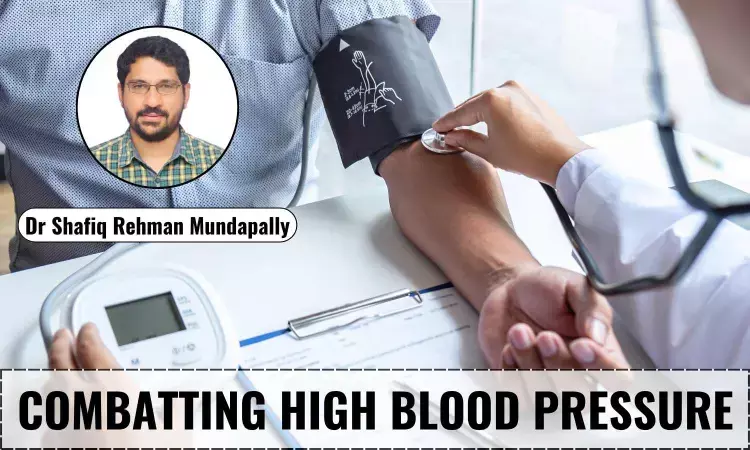- Home
- Medical news & Guidelines
- Anesthesiology
- Cardiology and CTVS
- Critical Care
- Dentistry
- Dermatology
- Diabetes and Endocrinology
- ENT
- Gastroenterology
- Medicine
- Nephrology
- Neurology
- Obstretics-Gynaecology
- Oncology
- Ophthalmology
- Orthopaedics
- Pediatrics-Neonatology
- Psychiatry
- Pulmonology
- Radiology
- Surgery
- Urology
- Laboratory Medicine
- Diet
- Nursing
- Paramedical
- Physiotherapy
- Health news
- Fact Check
- Bone Health Fact Check
- Brain Health Fact Check
- Cancer Related Fact Check
- Child Care Fact Check
- Dental and oral health fact check
- Diabetes and metabolic health fact check
- Diet and Nutrition Fact Check
- Eye and ENT Care Fact Check
- Fitness fact check
- Gut health fact check
- Heart health fact check
- Kidney health fact check
- Medical education fact check
- Men's health fact check
- Respiratory fact check
- Skin and hair care fact check
- Vaccine and Immunization fact check
- Women's health fact check
- AYUSH
- State News
- Andaman and Nicobar Islands
- Andhra Pradesh
- Arunachal Pradesh
- Assam
- Bihar
- Chandigarh
- Chattisgarh
- Dadra and Nagar Haveli
- Daman and Diu
- Delhi
- Goa
- Gujarat
- Haryana
- Himachal Pradesh
- Jammu & Kashmir
- Jharkhand
- Karnataka
- Kerala
- Ladakh
- Lakshadweep
- Madhya Pradesh
- Maharashtra
- Manipur
- Meghalaya
- Mizoram
- Nagaland
- Odisha
- Puducherry
- Punjab
- Rajasthan
- Sikkim
- Tamil Nadu
- Telangana
- Tripura
- Uttar Pradesh
- Uttrakhand
- West Bengal
- Medical Education
- Industry
Combatting High Blood Pressure: Lifestyle-led Healthier Life - Dr Shafiq Rehman Mundapally

High blood pressure is a major risk factor for Cardiovascular Diseases (CVDs). However, it remains poorly controlled due to low knowledge of hypertension, inadequate basic care, and poor follow-up. Hypertension, or high blood pressure, affects a significant portion of the population and poses a substantial risk for heart disease and stroke.
Many people with hypertension are unaware of their illness in India. Only one-fourth of Indians living in rural areas and two-fifths of those living in cities are aware of their hypertension, which is a worryingly low ratio. Only 22.5% of hypertensive patients in India had their blood pressure under control during the most recent period, which is a distressingly low proportion.
Additionally, only between 25% and 35% of those identified in both rural and urban settings receive treatment. The previously published meta-analysis of community-level hypertension control in India with data from 1950 to 2013 showed a control rate of 10.7% for rural India and 20.2% for urban India.
Incorporating certain lifestyle modifications can effectively prevent the onset of hypertension. According to research, people with hypertension can considerably lower their blood pressure with even a minor weight loss. Body weight that is too high strains the heart more, raising blood pressure.
The Dietary Approaches to Stop Hypertension (DASH) diet has demonstrated impressive blood pressure-lowering effects. The DASH diet, which is high in fruits, vegetables, whole grains, and low-fat dairy products, has been shown in studies to lower systolic blood pressure by about 6 to 11 mmHg.
Indian cuisine frequently contains too much salt, which is a key cause of hypertension. People can effectively control their salt consumption and lower their risk of hypertension by actively using less table salt when cooking and avoiding processed and packaged meals that are rich in sodium.
Regular exercise is essential for preserving a healthy blood pressure range. Exercises like surya namaskar, cycling, yoga, or brisk walking have been shown to dramatically enhance cardiovascular health and lower blood pressure. Incorporating traditional workouts and physical activities from the Indian culture into daily routines is a simple way to improve general well-being.
Excessive alcohol intake has been linked to an increased risk of high blood pressure. Individuals need to be aware of recommended limits and practice moderation or consider abstaining from alcohol altogether, particularly if they have hypertension or are at risk.
In recent years, chronic stress has become more prevalent as a result of our fast-paced and demanding lifestyles. People who effectively manage their stress and lower their risk of developing hypertension can benefit from engaging in activities like yoga, meditation, deep breathing exercises, and hobby-related pursuits. Getting emotional support from family, friends, or support groups can also be very beneficial.
By incorporating these key lifestyle modifications, one can significantly reduce the risk of developing hypertension. Maintaining a healthy weight, following a balanced diet such as the DASH diet, limiting sodium and alcohol intake, engaging in regular physical activity, managing stress, and quitting smoking are all essential steps towards preventing hypertension.
Understanding the numbers and facts related to hypertension reinforces the importance of these lifestyle changes for optimal blood pressure management. Consulting with healthcare professionals and seeking their guidance can provide personalized support in implementing these modifications and maintaining a healthy lifestyle.
By taking proactive measures, we can protect our health and well-being, paving the way for a healthier future with reduced hypertension prevalence in the country.
Dr Shafiq Rehman Mundapally MBBS, MD (General Medicine), DNB (Cardiology) is a Consultant Interventional Cardiologist at Renai Medicity, Kochi, Kerala having over 11 years of experience in the field of Cardiology. He specialises in Coronary interventions- Angiograms, angioplasties etc, Peripheral vascular interventions, Pacemaker implantations, Structural heart disease interventions, like Closures of ASD, PDA etc, Valve procedures like TAVI, Endovascular aortic stent grafting, Diagnostic investigations, 2D Echocardiography Doppler Studies, 24 hours Holter Monitoring, Treadmill stress test, Cardiac CT imaging.


